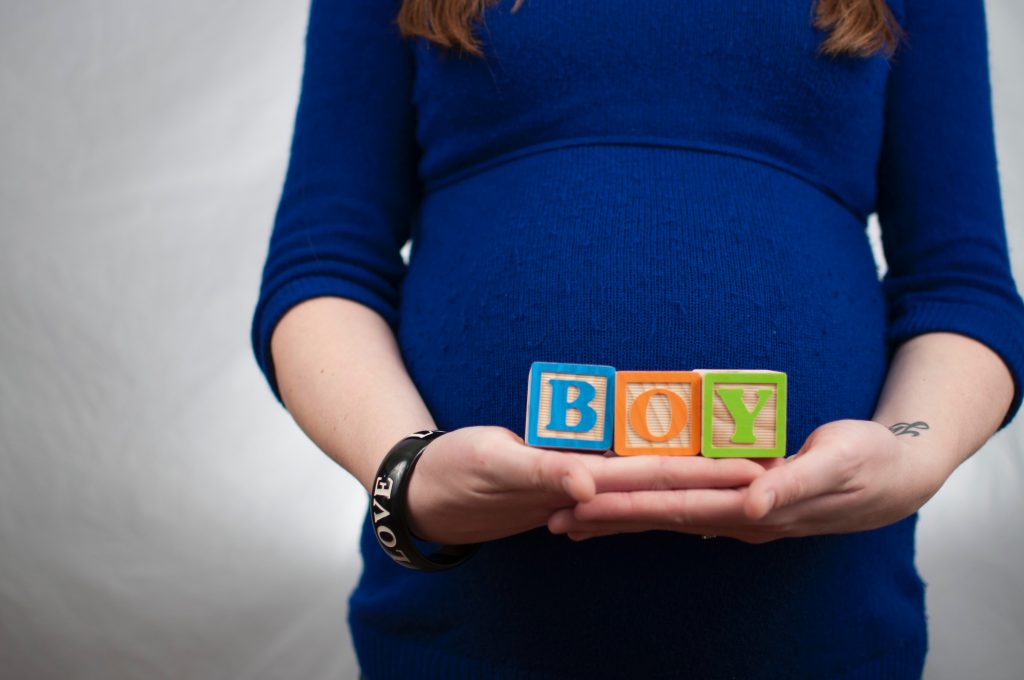
Neurodevelopmental disorders like autism and schizophrenia disproportionately affect males and are directly linked to early life adversity caused by maternal stress and other factors, which might be impacted by nutrition. But the underlying reasons for these male-specific impacts are not well understood. Researchers from the University of Missouri School of Medicine and the MU Thompson Center for Autism and Neurodevelopmental Disorders have uncovered possible reasons for male vulnerability in the womb, and they’ve learned that the maternal dietary supplement docosahexanoic acid (DHA) may guard against the impact of maternal stress on unborn males during early development.
“We believe differences in metabolic requirements for male and female embryos as early as the first trimester, combined with dynamic differences in the way the male and female placenta reacts to environmental factors, contributes to the increased risk for male neurodevelopmental disorders later in life,” said senior author David Beversdorf, MD, a professor of radiology, neurology and psychology at MU.
Beversdorf worked with principal investigator Eldin Jašarevic, PhD, an assistant professor of pharmacology at the University of Maryland School of Medicine and a team of researchers on the study which involved grouping 40 mice into four different cohorts. Group 1 mothers received a standard diet and were not exposed to any early prenatal stress (EPS). Group 2 got the standard diet while being exposed to (EPS), which consisted of restraint, light, noise and predator threat. Group 3 got a diet modified with supplemental DHA but was not exposed to EPS. Group 4 received DHA supplementation and EPS.
The team analyzed the embryos and placentas at 12.5 days of gestation and found exposure to prenatal distress decreased placenta and embryo weight in males but not females. In the DHA groups, they found the supplement reversed the impact of EPS on males.
“This study yielded two results regarding the interaction between maternal stress and dietary DHA enrichment in early stage embryos,” Beversdorf said. “First, stress on the mother during the first week of gestation appeared to influence gene expression pattern in the placenta, and the gender of the offspring determined the magnitude of disruption. Second, a maternal diet enriched with preformed DHA during periods of high stress showed partial rescue of stress-dependent dysregulation of gene expression in the placenta.”
Study Results Overview
- Exposure to early prenatal stress (EPS) decreased placenta and embryo weight in males, but not females, exposed to the control diet.
- DHA enrichment reversed the sex-specific decrease in placenta and embryo weight following EPS.
- Early prenatal exposure upregulated expression of genes associated with oxygen and nutrient transport, including hypoxia inducible factor 3α (HIF3α), peroxisome proliferator-activated receptor alpha (PPARα), and insulin-like growth binding factor 1 (IGFBP1), in the placenta of CTL diet males exposed to EPS.
- DHA enrichment in EPS-exposed animals abrogated the male-specific upregulation of PPARα, HIF3α, and IGFBP1.
- Taken together, these studies suggest that maternal dietary DHA enrichment may buffer against maternal stress programming of sex-specific outcomes during early development.
Beversdorf said future studies will be needed to better understand the complex cellular and molecular mechanisms linking maternal diet consumption, chronic stress during pregnancy, placental gene expression and lasting health outcomes in offspring.
Conclusion/ “Taken together, the results of this exploratory study show that maternal consumption of DHA-enriched diet during chronic stress exposure during the first week of pregnancy may influence gene expression patterns of the placenta in a sex-specific manner. Additional follow-up studies are now needed to follow-up what is suggested in this initial exploratory study, and to better understand the complex cellular and molecular mechanisms linking maternal diet consumption, chronic stress during pregnancy, placental gene expression, and lasting health outcomes in offspring.”




